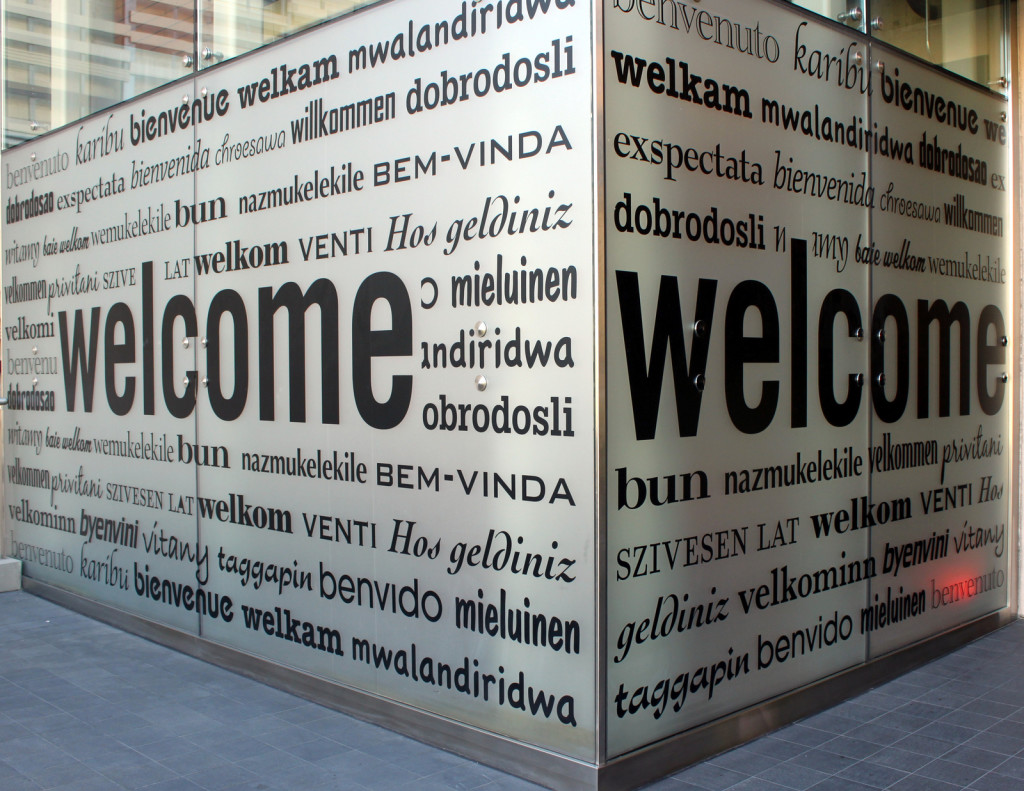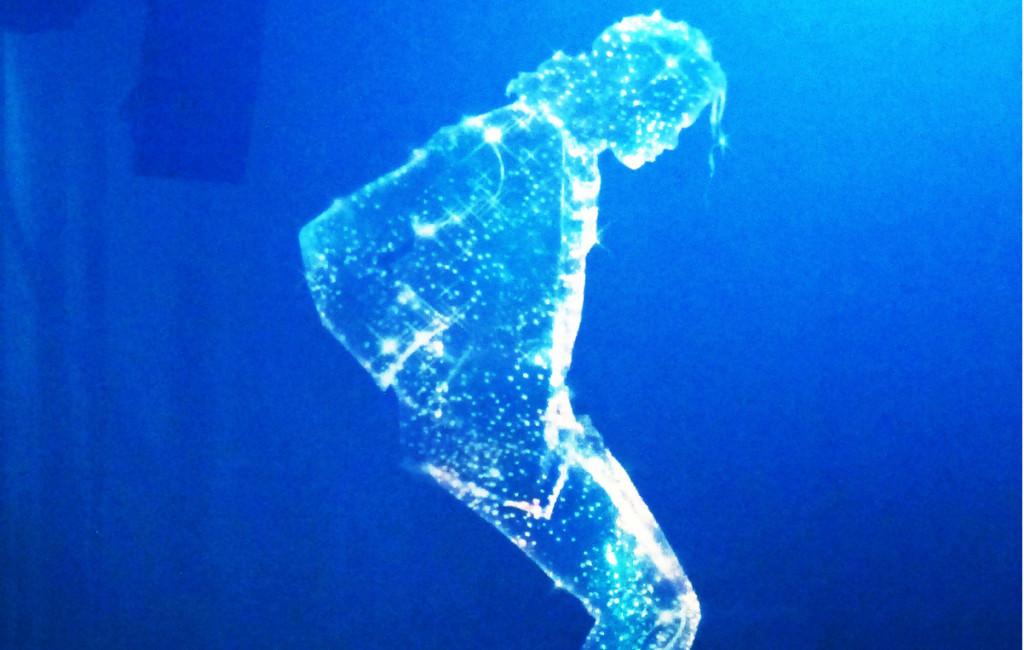A Warm Welcome to our Newest IAVM Members
I’m happy to introduce our newest IAVM members—a total of 171 members in March and April. Our network is growing, and our membership now totals 4,332 members. Once again, a huge thank you to those of you that referred new members to our ranks!
Video: How MetLife Stadium Transitions from Team to Team
Okay, the video is a couple of years old, but it’s still cool. Also, football season can’t get here soon enough for me.
Host Wendy Bounds speaks with several MetLife Stadium employees, including IAVM member Alan Kashian, about the process of changing from the Giants to the Jets (or if you prefer, Jets to Giants). For example, 1,100 manual elements need to be changed when transitioning from one team to the other.
Go ahead and watch the video above, and also check out our Super Bowl success stories feature from the February/March issue in FM magazine.
Is Bitcoin the Future of Currency for Venues?
Richard Branson, chairman and founder of Virgin Group Ltd., recently invested $30 million in BitPay, a software program that processes Bitcoin payments.
“Bitpay has proven itself to process Bitcoin safely and reliably, growing the market and increasing adoption, which continues to build trust, legitimacy and momentum in this exciting currency revolution,” Branson told Business Insider.
Branson has always been a visionary, and he’s not the only one. Many venues and universities accept Bitcoin for payments, and event though the value has fluctuated over the past year, the digital currency appears to be growing in popularity. According to CoinDesk survey, approximately 60,000 businesses now accept Bitcoin, and by the end of 2014, there will be 7.3 million Bitcoin wallets (a service that holds your coins for you).
One of our features in the April/May issue of FM magazine is about Bitcoin and how some organizations, such as the Sacramento Kings, are using it to keep on the cutting edge in their industries.
“In the short time since announcing its Bitcoin program, the Kings organization has been approached by other professional sports teams as well as local businesses that are now interested in accepting the virtual currency…,” Michael Pinchera wrote. “Beyond the value of sales attributable to Bitcoins, the organization is reaping other benefits as a result of its bold move: It’s seen as an industry innovator while simultaneously gaining valuable experience transacting with the future of currency.”
Please read the story, and let us know your thoughts in the comments section about Bitcoin.
(Image: Flickr CC/Antana)
Industry News Weekly Roundup
There was a lot of news this past week. Here are some stories that caught our eyes.
Michael Jackson Hologram Rocks Billboard Music Awards: Watch & Go Behind the Scenes
—Billboard
“The Michael Jackson performance on the 2014 Billboard Music Awards was the result of nearly half a year of planning, choreography and filming, not to mention the development of new technology. Producers of the Billboard Music Awards did not see even a portion of the film until eight days before the broadcast.”
Some NFL Teams Are Going Green
—The Wall Street Journal
“The NFL is part of a general effort among U.S. professional and collegiate sports leagues to embrace cleaner energy, led in part by a group launched in 2011 calling itself the Green Sports Alliance, co-founded by the Natural Resources Defense Council and Microsoft co-founder Paul Allen’s Vulcan Inc.”
NT and ATG to Trial New Technology for Deaf Audiences
—The Stage
“Ambassador Theatre Group and the National Theatre will be among the first organisations that will trial new technology, aimed at increasing access for deaf and hard of hearing audiences and providing more accurate automated captioning.”
Is Work Your Happy Place?
—The New York Times
“While work is widely viewed as the major source of stress for Americans, new research shows that people have significantly lower stress levels when they are at the office compared to their time at home.”
No Time
—The New Yorker
“How did we get so busy?”
(photo credit: PhotosByDavid via photopin cc)
Running from Bulls, Zombies, and Each Other
I don’t remember the last time someone asked me to play a game of flag football. In fact, the last team sport I played was sandlot kickball about five years ago. Today, if I’m asked to do something sporty, it’s usually along the lines of kayaking on White Rock Lake or running away from zombies in an open field.
It appears that we Americans are no longer in love with team sports. We’d rather bike, backpack, or kickbox.
Consider a recently released survey from the Sport & Fitness Industry Association that showed physical activity last year was flat. That’s actually good, because it’s been in decline for a long time.
“Individual sports and activities, though, showed bigger changes, some of them dramatic,” Carl Bialik wrote on FiveThirtyEight.com. “The number of people who participated at least once in adventure racing or a traditional triathlon increased by more than 25 percent last year compared with the year before.”
Speaking of adventure racing, in the April/May issue of FM magazine, the “Up Close” profile features The Great Bull Run that took place April 5 at Texas Motorplex. The picture above is from the race, which had 36 bulls chasing hundreds of participants.
“We had suite holders with premier seating avoid their suites completely just to get down on the fence and see the action closer,” said IAVM member Gabrielle Stevenson, president and general manager of Texas Motorplex. “We have heart-pounding action at the track often, but this takes the win for the most Go-Pros, selfies, and tomatoes I’ve ever seen.”
Oh yes, there was a tomato fight, too, which could be considered another individual sport. Well, I guess there could be tomato teams, but that would be crazy. Okay, not as crazy as being chased by bulls.
Below is a video from the bull run.
(Image: Ted Marek)
Do you want to receive a Front Row News weekly digest?
Categories
- Allied (861)
- Architecture (147)
- Arenas (747)
- Career (897)
- Convention Centers (895)
- Education (623)
- Events (1,544)
- Food & Beverage (193)
- Foundation (113)
- Guest Experience (1,496)
- Industry News (2,270)
- Leadership (1,888)
- Marketing (150)
- Membership (2,000)
- Music (213)
- Performing Arts Centers (454)
- Professional Development (409)
- Research (127)
- Safety & Security (442)
- Sports (763)
- Stadiums (608)
- Student (159)
- Technology (516)
- Ticketing (92)
- Touring (82)
- Trends (364)
- Uncategorized (743)
- Universities (218)
- Video (25)
- Young Professional (198)
Twitter Feed
- Twitter feed loading
Recent Posts
- Venuworks and ATG Entertainment Selected to Manage Fresno Convention and Entertainment Center
- Seattle Convention Center Announces Strategic Leadership Appointment and Growth Initiatives for 2026
- Peggy Daidakis Humbly Made Convention Center History
- Welcome to Our Newest Members
- New Member Benefit! IAVM Partners with Advantage Training to Elevate Staff Readiness and Guest Experience
Categories
- Allied
- Architecture
- Arenas
- Career
- Convention Centers
- Education
- Events
- Food & Beverage
- Foundation
- Guest Experience
- Industry News
- Leadership
- Marketing
- Membership
- Music
- Performing Arts Centers
- Professional Development
- Research
- Safety & Security
- Sports
- Stadiums
- Student
- Technology
- Ticketing
- Touring
- Trends
- Uncategorized
- Universities
- Video
- Young Professional
Archives
- December 2025
- November 2025
- October 2025
- September 2025
- August 2025
- July 2025
- June 2025
- May 2025
- April 2025
- March 2025
- February 2025
- January 2025
- December 2024
- November 2024
- October 2024
- September 2024
- August 2024
- July 2024
- June 2024
- May 2024
- April 2024
- March 2024
- February 2024
- January 2024
- December 2023
- November 2023
- October 2023
- September 2023
- August 2023
- July 2023
- June 2023
- May 2023
- April 2023
- March 2023
- February 2023
- January 2023
- December 2022
- November 2022
- October 2022
- September 2022
- August 2022
- July 2022
- June 2022
- May 2022
- April 2022
- March 2022
- February 2022
- January 2022
- December 2021
- November 2021
- October 2021
- September 2021
- August 2021
- July 2021
- June 2021
- May 2021
- April 2021
- March 2021
- February 2021
- January 2021
- December 2020
- November 2020
- October 2020
- September 2020
- August 2020
- July 2020
- June 2020
- May 2020
- April 2020
- March 2020
- February 2020
- January 2020
- December 2019
- November 2019
- October 2019
- September 2019
- August 2019
- July 2019
- June 2019
- May 2019
- April 2019
- March 2019
- February 2019
- January 2019
- December 2018
- November 2018
- October 2018
- September 2018
- August 2018
- July 2018
- June 2018
- May 2018
- April 2018
- March 2018
- February 2018
- January 2018
- December 2017
- November 2017
- October 2017
- September 2017
- August 2017
- July 2017
- June 2017
- May 2017
- April 2017
- March 2017
- February 2017
- January 2017
- December 2016
- November 2016
- October 2016
- September 2016
- August 2016
- July 2016
- June 2016
- May 2016
- April 2016
- March 2016
- February 2016
- January 2016
- December 2015
- November 2015
- October 2015
- September 2015
- August 2015
- July 2015
- June 2015
- May 2015
- April 2015
- March 2015
- February 2015
- January 2015
- December 2014
- November 2014
- October 2014
- September 2014
- August 2014
- July 2014
- June 2014
- May 2014
- April 2014
- March 2014
- February 2014
- January 2014
- December 2013
- November 2013
- October 2013
- September 2013
- August 2013
- July 2013
- June 2013
- May 2013
- April 2013
- March 2013
- February 2013
- January 2013
- May 2012
- March 2012
- December 2011
- November 2011
- October 2011
Recent Comments
- Frank Bradshaw, Ph.D., CVE on John Meyer, CVE, a Tireless Advocate of Certification for Venue Professionals, Has Died
- Neil Sulkes on Hilary Hartung, Friend to Many in Venue Marketing, Has Left Us
- Jason Parker, CVE on The Devastation of Hurricane Helene and How We Can Support One Another
- Larry Perkins on Touhey Testifies Against Speculative Ticketing Before Congressional Subcommittee
- Peter Secord on Major Players for Planned Elkhart Amphitheater Were in the Mix at VenueConnect




